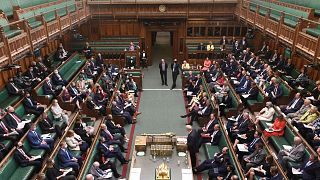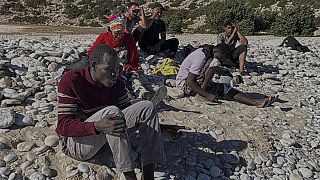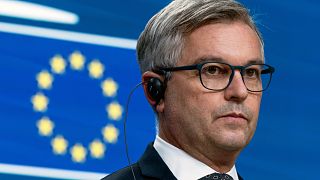Libya
Libya’s unity government leader, Fayez al-Sarraj is facing a huge task uniting his country.
Sarraj who was elected in June 2014 to lead the country, fled to the eastern city of Tobruk with some lawmakers after a militia alliance overran the capital and established a rival administration.
Since his return to Tripoli last week, he has been struggling to assert his government’s authority. That was dealt a further blow on Wednesday when the leader of the Tripoli-based rival government, Ghweil Khalifa refused to cede power.
Khalifa had earlier indicated he was ready to cede power to al-Sarraj’s administration to “end the bloodshed” as well as prevent a further “partitioning” of the country.
After two years of negotiations, the United Nations brokered a power-sharing deal between the rival Libyan politicians with al-Sarraj named Prime Minister.
But already, divisions have emerged within the presidential council, with two of the nine-member councils refusing to sign up to the latest proposal.
“His political stature is still very fragile,” said Silvia Colombo, a Libyan expert with the Rome-based Institute of International Affairs.
She noted that Sarraj had taken everyone by surprise when he travelled with cabinet ministers to Tripoli last week from a self-imposed exile in Tunis.
Libya’s ambassador to France, Shibani Abuhamud said the one positive outcome is the fact that the government sends a message of national conciliation.
“This government is a national unity government, and it represents the whole Libyan society. Also, there is the fact that many members of the government are good compared to what was proposed before, so there are many reasons to believe this government is promising.”
However, political analysts are not as hopeful.
Sarraj described as a novice politician, is expected to take on several major tasks and set some priorities.
Fayez al-Sarraj: novice politician trying to unite Libya https://t.co/M33UcjGmeZ pic.twitter.com/p7BycAAecy
— FRANCE 24 (@FRANCE24) April 6, 2016
Abhamud suggests the government should first be brought back to the capital, Tripoli and then be made to focus on issues of humanitarian crisis within the country, as well as bring back some of the refugees.
The Islamic State (IS) group has been getting stronger in the region but some think it is only natural for world powers to be concerned about IS because it affects them directly.
Experts say Libya cannot take on IS alone, it will need some sort of outside support if they want to push back IS at their borders.
AFP, Agences












Go to video
South Sudan's president Salva Kiir dismisses army chief Paul Nang Majok
01:09
Liberian president issues official apology to civil war victims
01:12
One child displaced every five seconds in MENA region conflicts
01:56
Sudan war fuelled by external arms flow to the country
01:52
Iran and Israel exchange more missiles in retaliatory attacks
01:10
Ghana ends support to Western Sahara, backs Moroccan autonomy plan instead